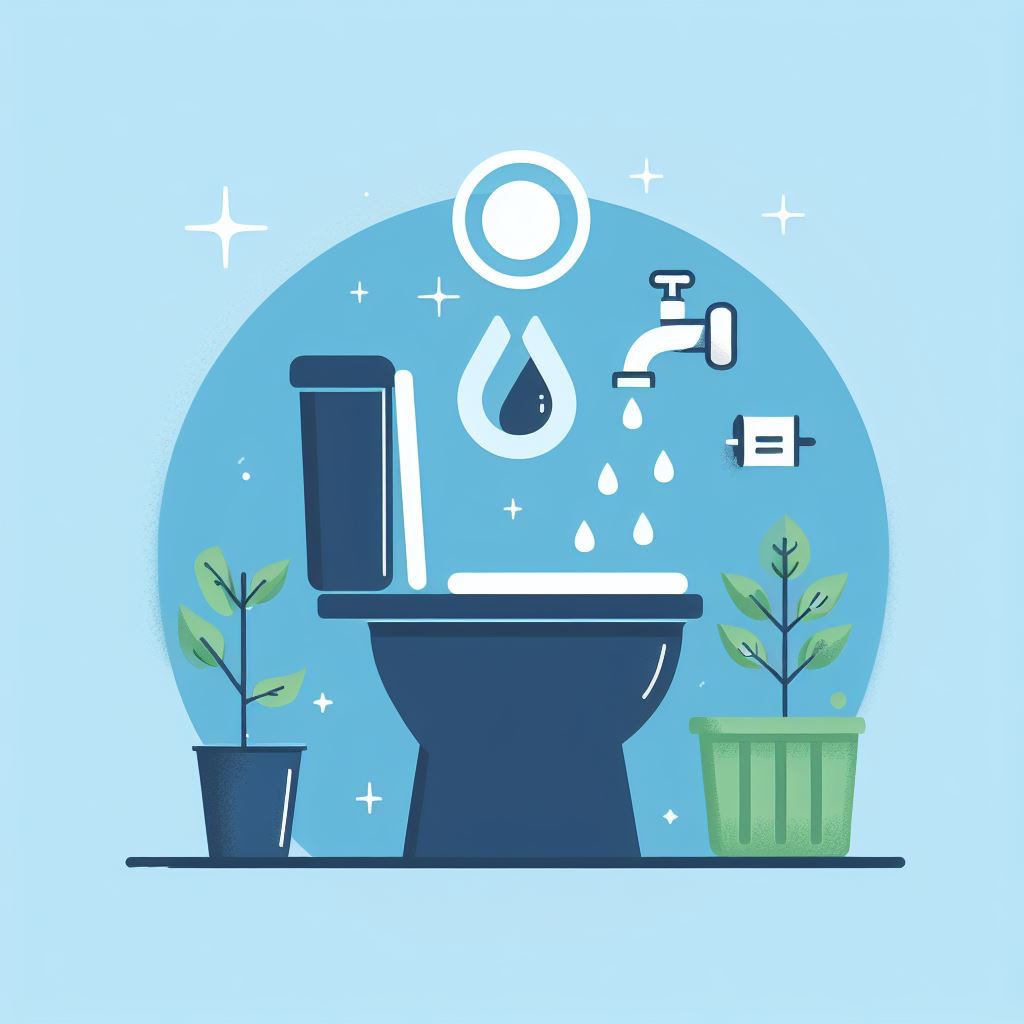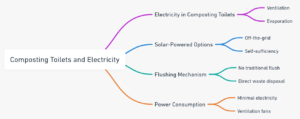Composting toilets are becoming increasingly popular as a sustainable and eco-friendly alternative to traditional flush toilets. But a common question that arises is: do composting toilets use water? In this article, we’ll delve deep into the world of composting toilets, answering this question and many more.
Key Takeaways:
- Composting toilets primarily operate without water.
- They can save thousands of gallons of water each year.
- These toilets are beneficial for the environment and reduce wastewater treatment needs.
[toc]
How Do Composting Toilets Work?
The Basics
Composting toilets are designed to treat human waste through a biological process called composting. This process breaks down waste into harmless compost that can be used as soil conditioners. The primary advantage of these toilets is that they do not use water for flushing, making them an excellent choice for water conservation.
The Process
- Waste Collection: When you use a composting toilet, the waste (both liquid and solid) is collected in a chamber.
- Decomposition: Over time, the waste decomposes with the help of aerobic bacteria.
- End Product: The end product is a nutrient-rich compost that can be safely returned to the earth.
Water Usage in Composting Toilets
To answer the main question, do composting toilets use water? The simple answer is no. They don’t use water for flushing like traditional toilets. However, some models might require minimal water or moisture to assist in the composting process, but this is significantly less than a regular toilet.

Benefits of Composting Toilets
Water Conservation
One of the primary benefits of composting toilets is water conservation. Traditional toilets can use up to 3.5 gallons of water per flush. In contrast, composting toilets use little to no water, saving thousands of gallons yearly.
Reduced Strain on Septic and Sewer Systems
Without the need for flushing, composting toilets reduce the strain on septic systems and municipal wastewater treatment facilities. This can lead to cost savings for homeowners and municipalities.
Eco-friendly
Composting toilets are eco-friendly. They reduce water usage, decrease wastewater, and produce compost that can enrich the soil.
Types of Composting Toilets
Self-contained Units
These are compact units where the composting process happens within the toilet itself. They are suitable for smaller spaces and are relatively easy to install.
Central Systems
Central composting toilet systems have a separate composting unit located away from the toilet. These are ideal for larger homes or commercial establishments.

Do Composting Toilets Use Other Resources?
While they save on water, composting toilets might use other resources. For instance:
- Electricity: Some units have fans or heaters to accelerate the composting process.
- Bulking Agents: Materials like sawdust or peat moss might be added to aid in composting.
Understanding Water-Related Terms with Composting Toilets
To further clarify, let’s address some related keywords:
- Do composting toilets use water lines? No, they don’t need to be connected to water lines.
- Do composting toilets use water bottles? Not typically, but water might be added occasionally to maintain moisture levels.
- Do composting toilets use water tank? No, they don’t have a flushing mechanism that requires a tank.
- Do composting toilets use water treatment? They reduce the need for wastewater treatment.
- Do composting toilets use water heater? No, but some might have electric heaters to aid composting.
- Do composting toilets use water supply? They don’t need a continuous water supply like traditional toilets.
- Do composting toilets use water pipes? No water pipes are required for their operation.
- Do composting toilets use water cannon? This term isn’t relevant to composting toilets.
- Do composting toilets use a water meter key? No, they don’t impact water meter readings as they don’t use water.
- Do composting toilets use water from depths? No, they operate without sourcing water.
- How much water does a composting toilet need? Minimal to none, depending on the model.
An Analogy and a Metaphor to Explain Composting Toilets
Analogy: Think of composting toilets as a garden compost bin. Just as you throw in vegetable scraps and they turn into nutrient-rich compost over time, composting toilets transform human waste into valuable compost.
Metaphor: Composting toilets are like the earth’s natural recycling system, turning waste into treasure.
This concludes part 1 of our comprehensive guide on composting toilets and their water usage. Stay tuned for part 2, where we’ll address more related topics and frequently asked questions.

Part 2: Diving Deeper into Composting Toilets and Water Usage
In the first part of our guide, we introduced the basics of composting toilets and how they operate primarily without water.
Let’s delve deeper into these eco-friendly toilets’ intricacies and benefits and address some common misconceptions.
Why Choose a Composting Toilet?
Economic Benefits
Composting toilets can lead to significant savings in the long run. By reducing water usage, homeowners can cut down on their water bills. Moreover, installation and maintenance costs are minimized since these toilets don’t require complex plumbing or sewage systems.
Environmental Impact
The environmental benefits of composting toilets are manifold:
- Water Conservation: As highlighted before, these toilets save thousands of gallons of water annually.
- Reduced Pollution: By eliminating the need for sewage systems, composting toilets prevent the contamination of water sources with harmful pollutants.
- Soil Enrichment: The compost produced is rich in nutrients and can enrich the soil, promoting sustainable agriculture.
Misconceptions About Composting Toilets
Odor Issues
One of the most common misconceptions about composting toilets is that they are smelly. However, when maintained correctly, these toilets are virtually odorless. The decomposition process, aided by aerobic bacteria, effectively breaks down waste without producing foul smells.
Hygiene Concerns
Another concern is hygiene. People often wonder if composting toilets are sanitary. The answer is yes. The composting process kills harmful pathogens, making the end product safe as a soil conditioner.
An Analogy and a Metaphor to Explain Composting Toilets
Analogy: Think of composting toilets as a garden compost bin. Just as you throw in vegetable scraps and they turn into nutrient-rich compost over time, composting toilets transform human waste into valuable compost.
Metaphor: Composting toilets are like the earth’s natural recycling system, turning waste into treasure.
Relevant Video and Links
For a visual explanation of how composting toilets work, you can watch this video:
Additionally, here are some external links to delve deeper into the topic:
- Composting Toilet – An Overview | ScienceDirect Topics
- The Facts about Composting Toilets – NOAH Certified
- Solved! What Is a Composting Toilet? – Bob Vila
This concludes part 2 of our comprehensive guide on composting toilets and their relationship with water. We hope this guide clarifies the topic and dispels any myths or misconceptions. Remember, composting toilets are not just an eco-friendly alternative but a step towards a sustainable future.



